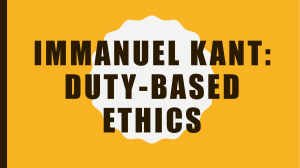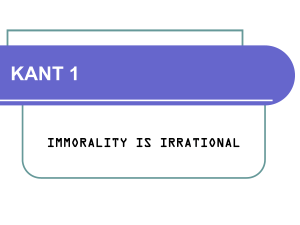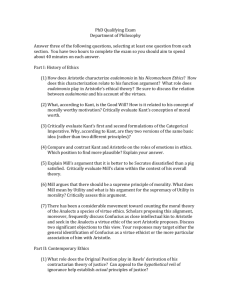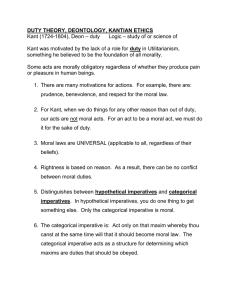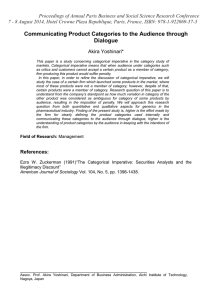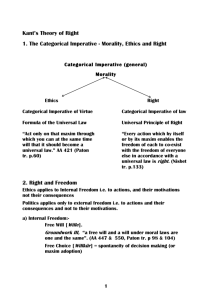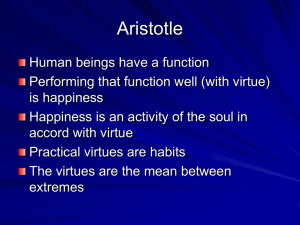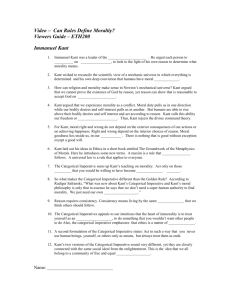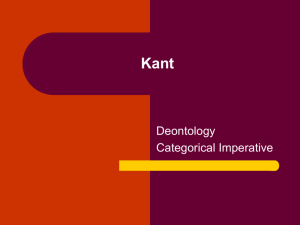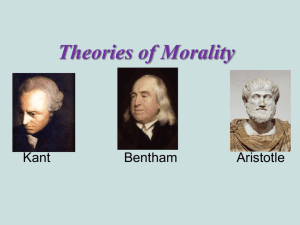Final Review Topics
advertisement
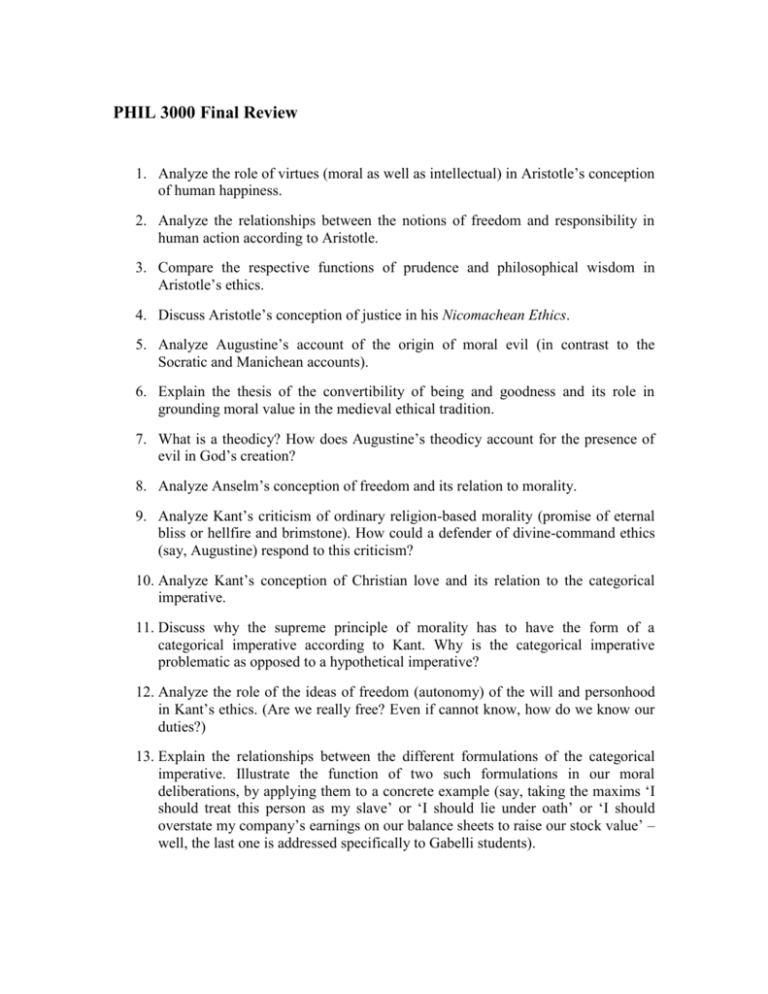
PHIL 3000 Final Review 1. Analyze the role of virtues (moral as well as intellectual) in Aristotle’s conception of human happiness. 2. Analyze the relationships between the notions of freedom and responsibility in human action according to Aristotle. 3. Compare the respective functions of prudence and philosophical wisdom in Aristotle’s ethics. 4. Discuss Aristotle’s conception of justice in his Nicomachean Ethics. 5. Analyze Augustine’s account of the origin of moral evil (in contrast to the Socratic and Manichean accounts). 6. Explain the thesis of the convertibility of being and goodness and its role in grounding moral value in the medieval ethical tradition. 7. What is a theodicy? How does Augustine’s theodicy account for the presence of evil in God’s creation? 8. Analyze Anselm’s conception of freedom and its relation to morality. 9. Analyze Kant’s criticism of ordinary religion-based morality (promise of eternal bliss or hellfire and brimstone). How could a defender of divine-command ethics (say, Augustine) respond to this criticism? 10. Analyze Kant’s conception of Christian love and its relation to the categorical imperative. 11. Discuss why the supreme principle of morality has to have the form of a categorical imperative according to Kant. Why is the categorical imperative problematic as opposed to a hypothetical imperative? 12. Analyze the role of the ideas of freedom (autonomy) of the will and personhood in Kant’s ethics. (Are we really free? Even if cannot know, how do we know our duties?) 13. Explain the relationships between the different formulations of the categorical imperative. Illustrate the function of two such formulations in our moral deliberations, by applying them to a concrete example (say, taking the maxims ‘I should treat this person as my slave’ or ‘I should lie under oath’ or ‘I should overstate my company’s earnings on our balance sheets to raise our stock value’ – well, the last one is addressed specifically to Gabelli students).
